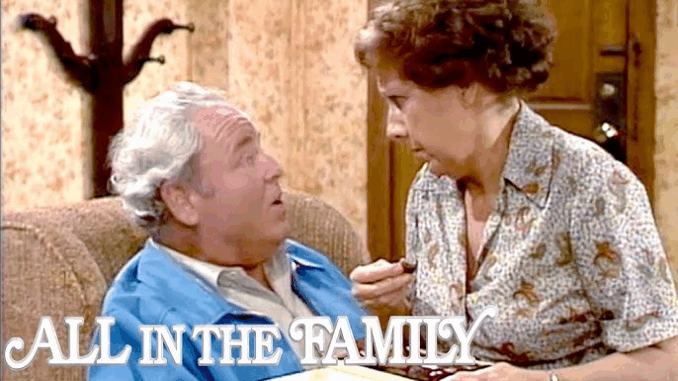
When American television audiences first met Archie Bunker in 1971, many were shocked, some were offended, but almost all were captivated. Norman Lear’s All in the Family was more than a sitcom—it was a national conversation, broadcast weekly into millions of homes.
At its core, All in the Family asked a bold question: could comedy challenge prejudice, and could laughter force self-reflection? The answer, it turned out, was yes. Over the course of nine groundbreaking seasons, the show confronted subjects long considered too controversial for primetime—racism, feminism, class tension, even mental health—with a sharp wit and a sharper conscience.
Archie Bunker, brought to life by Carroll O’Connor, was not a hero. He was stubborn, bigoted, and deeply flawed. Yet, through Lear’s writing and O’Connor’s nuanced performance, Archie became a tragicomic figure—sympathetic not because of his views, but in spite of them. He was a product of his time, and in many ways, he embodied the silent fears and unspoken biases of a generation struggling to adapt to a rapidly changing America.
The brilliance of All in the Family lay in its balance. For every conservative rant from Archie, there was a retort from his progressive son-in-law, Michael. For every loud proclamation, there was a quiet, often profound moment from Edith. The show never offered easy answers; instead, it forced viewers to sit with discomfort, to laugh at their own contradictions, and to perhaps reconsider them.
Culturally, All in the Family was revolutionary. It dismantled the sanitized image of American family life portrayed in earlier sitcoms like Leave It to Beaver and The Donna Reed Show. Instead, it presented a raw, authentic, and at times messy portrait of domestic life, where political debates erupted at the dinner table and generational divides were painfully real.
The show’s legacy is enduring. It inspired a wave of socially aware television that continues today. More importantly, it sparked difficult conversations across kitchen tables and in classrooms across the country. In 2019, ABC aired a live re-creation of an original episode, with Woody Harrelson as Archie and Marisa Tomei as Edith—a testament to the show’s timeless relevance.
In an era where media is often siloed by ideology, All in the Family reminds us that great television doesn’t preach to the choir—it opens the floor. It entertains, yes, but it also interrogates. And sometimes, as Archie Bunker taught us, the most uncomfortable characters are the ones we need most.
